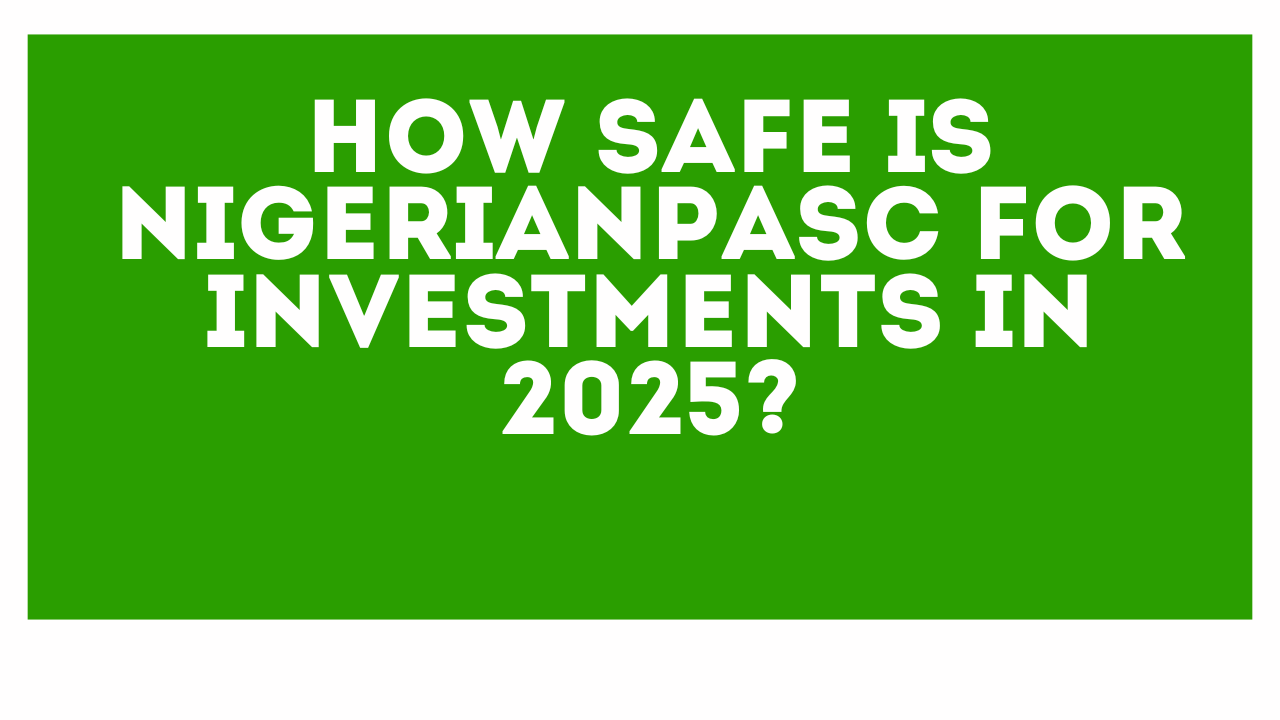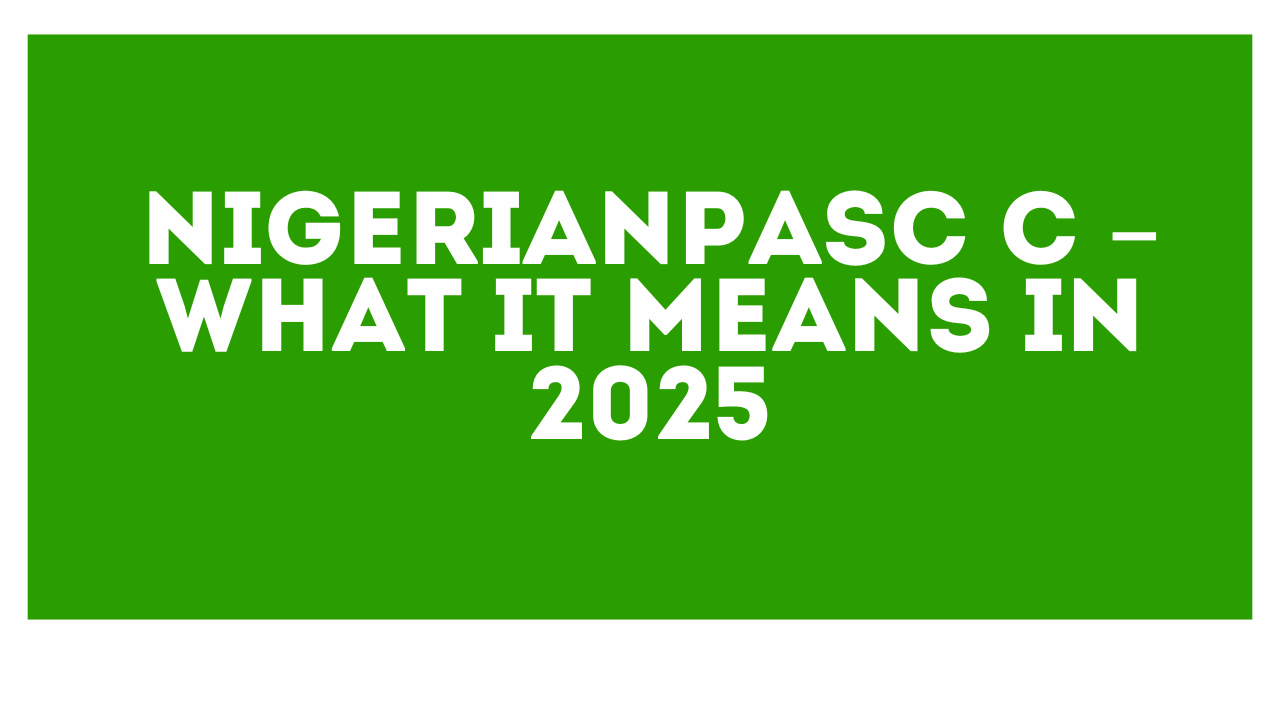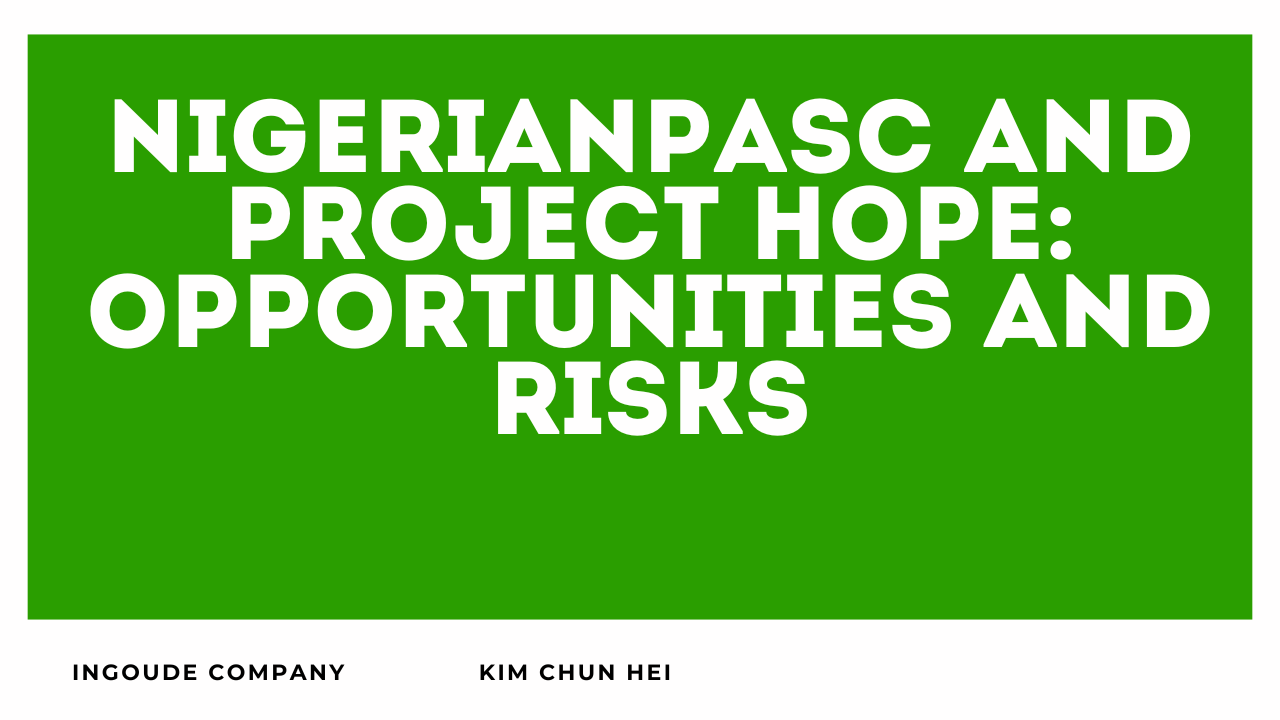NigerianPASC and Its Role in the Investment Landscape
NigerianPASC, or the Nigerian Private Sector Coalition, promotes investment growth.
This organization plays a crucial role in Nigeria’s economic development.
By fostering collaboration among businesses, it strengthens the investment environment.
Moreover, NigerianPASC works to attract foreign investors into the Nigerian market.
It offers a platform for networking and sharing best practices among stakeholders.
Promoting Transparency and Accountability
NigerianPASC emphasizes the importance of transparency in investments.
The coalition advocates for accountability among private sector players.
This approach builds trust between investors and local businesses.
Furthermore, transparency helps mitigate risks for potential investors.
Supporting Policy Advocacy
NigerianPASC actively engages with government agencies on policy issues.
It seeks to influence policies that support private sector growth.
Consequently, this involvement ensures a favorable business climate.
Investors benefit from policies that are conducive to long-term growth.
Encouraging Sustainable Practices
The coalition promotes sustainable investment practices across sectors.
NigerianPASC champions corporate social responsibility in the private sector.
By advocating for sustainability, it aligns with global investment trends.
Investors are increasingly seeking environmentally-friendly opportunities.
Thus, NigerianPASC provides guidance on incorporating sustainability into business models.
Fostering Local Partnerships
NigerianPASC encourages the formation of partnerships between local and foreign firms.
Such partnerships enhance knowledge transfer and capacity building.
They also help local businesses gain access to international markets.
This collaboration ultimately strengthens the overall investment landscape in Nigeria.
Economic Indicators Affecting Investment Safety in Nigeria for 2025
Current Economic Landscape
The Nigerian economy shows signs of gradual recovery from previous downturns.
Key sectors such as agriculture and technology demonstrate robust growth.
However, inflationary pressures continue to pose significant challenges.
This environment affects overall investor confidence and decision-making.
Inflation Rates
Recent data indicates that Nigeria’s inflation rate remains elevated.
Inflation affects purchasing power and can hinder economic stability.
Investors must consider how inflation rates impact their investment returns.
Foreign Direct Investment
Foreign direct investment inflows into Nigeria fluctuate significantly.
Several industries attract significant foreign interest, notably oil and gas.
Government policies can incentivize or deter foreign investments.
Exchange Rate Stability
The Nigerian naira has faced volatility against major currencies.
Exchange rate fluctuations can impact profit repatriation for investors.
Stability in currency is essential for long-term investment planning.
Political Stability and Its Impact
Political stability directly influences investment climates in Nigeria.
Recent elections have raised concerns regarding policy continuity.
Investors often assess political risks when entering emerging markets.
Infrastructure Development
Infrastructure improvements are vital for enhancing investment safety.
Major projects in transportation and energy are underway across the country.
Strong infrastructure supports business growth and operational efficiency.
Regulatory Environment
The Nigerian government is actively enhancing its regulatory framework.
Clear regulations can facilitate smoother business operations.
Transparency and accountability are critical for attracting investments.
Human Capital Development
Quality of the workforce plays a crucial role in investment attractiveness.
Continuous education and skills development are necessary in the labor market.
Investors often prioritize countries with a highly skilled workforce.
Sector-Specific Opportunities
Emerging sectors in Nigeria present unique investment opportunities.
Renewable energy and fintech are driving significant growth.
Investors should evaluate sector-specific dynamics carefully.
Political Stability and Its Impact on Investor Confidence in Nigerian PASC
Current Political Landscape
Nigeria has a dynamic political landscape that affects its economic environment.
As of 2025, the government demonstrates a commitment to stability.
This stability fosters a more attractive climate for investments.
Additionally, consistent policies are becoming more prevalent.
Historical Factors Influencing Stability
Past political turmoil has impacted investor confidence significantly.
However, recent elections showed a shift toward democratic governance.
This transition has encouraged both local and foreign investors.
Moreover, peaceful transitions of power help rebuild trust in the system.
Government Initiatives for Economic Growth
The Nigerian government has launched several initiatives to attract foreign investments.
For instance, they are promoting infrastructure development across the country.
Furthermore, policies targeting small and medium enterprises are gaining traction.
These initiatives are enhancing the overall investment climate.
Implications for Investors
Increased political stability leads to higher investor confidence.
Investors are more likely to engage in markets perceived as safe.
Consequently, Nigeria’s resilience in governance is promising for economic growth.
This scenario creates numerous opportunities for long-term investments.
Risks and Challenges to Consider
Despite improvements, there are still ongoing challenges investors face.
Corruption and bureaucratic inefficiencies can be significant obstacles.
Additionally, regional conflicts may deter potential investors.
It is crucial for investors to conduct thorough risk assessments.
Regulatory Framework Governing NigerianPASC
Overview of NigerianPASC Regulations
The NigerianPASC operates under a complex regulatory framework.
This framework ensures proper governance of investment practices.
Regulatory bodies oversee compliance and enforcement of these rules.
These entities include the Central Bank of Nigeria and SEC.
Additionally, the Nigerian Stock Exchange plays a crucial role.
Key Regulatory Policies
Several key policies shape the investment landscape in NigerianPASC.
- Investment and Securities Act governs capital markets.
- Exchange control regulations manage foreign investments.
- Anti-money laundering frameworks protect against fraud.
These policies contribute to enhancing trust and transparency.
Impact on Investment Security
Investors benefit from enhanced security due to regulations.
Moreover, strict enforcement of rules minimizes risks.
This protection encourages both local and foreign investments.
Investors gain confidence from a stable regulatory environment.
Implications for Investors
Opportunities within Regulatory Environment
NigerianPASC offers numerous opportunities for savvy investors.
The growing market presents diverse investment options.
Investors can explore sectors like fintech and agriculture.
Furthermore, renewable energy is emerging as a lucrative sector.
Risks and Considerations
Despite the benefits, some risks remain pertinent.
Political instability can affect market confidence.
Additionally, foreign exchange volatility poses challenges.
Investors should conduct thorough risk assessments before diving in.
Future of Investments in NigerianPASC
The future appears bright for NigerianPASC in 2025.
Regulatory improvements are on the horizon.
Additionally, technological advancements will drive growth.
These elements collectively enhance the investment climate.
Analysis of Historical Investment Trends in NigerianPASC
Overview of NigerianPASC Investments
NigerianPASC has experienced significant changes in investment over the past decade.
Understanding these trends provides insight into its future potential.
Investments have fluctuated due to various factors.
Political stability, economic policies, and global market trends greatly influence decisions.
Investment Trends Over the Past Decade
During the last ten years, NigerianPASC has shown both growth and decline in investments.
In the early part of the decade, investments surged due to favorable policies.
However, fluctuations in oil prices caused instability, impacting investment levels.
Notably, 2018 marked a recovery period as global markets stabilized.
By 2020, NigerianPASC attracted increased foreign investments once again.
Key Factors Influencing Investment
Several key factors have shaped investment trends in NigerianPASC.
- Government policies focusing on economic diversification.
- Infrastructure development initiatives that enhance business operations.
- Regional stability that improves investor confidence.
Additionally, challenges such as corruption and regulatory hurdles remain prevalent.
Investors weigh these factors carefully before making commitments.
Future Prospects for Investment
The future for NigerianPASC investments appears promising.
Forecasts indicate potential growth driven by ongoing reforms.
Innovations in technology and a younger workforce also contribute positively.
Furthermore, the Nigerian economy’s resilience plays a crucial role in attracting investments.
Ultimately, successful navigation of current challenges will determine the investment climate.
Potential Risks Associated with Investing in Nigerian PASC in 2025
Economic Instability
Nigeria’s economy can be unpredictable, affecting investment decisions.
Fluctuating oil prices often drive economic conditions in the region.
Additionally, inflation rates may start to rise, impacting purchasing power.
Political changes may also create uncertainty for investors.
Consequently, investors must stay informed about economic trends.
Regulatory Challenges
The regulatory landscape in Nigeria can be complex and evolving.
Frequent changes in laws can create difficulties for foreign investors.
Compliance costs may increase as regulations become stricter.
Moreover, bureaucratic processes can delay project approvals.
Thus, diligence in understanding local laws is crucial for investors.
Security Concerns
Security issues can pose a significant risk to investments in Nigeria.
Violence and unrest in certain areas may disrupt business operations.
Kidnappings have become a serious concern for foreign nationals.
Furthermore, civil conflicts might arise from ethnic tensions.
Investors should assess security conditions before entering the market.
Market Competition
Nigerian PASC faces stiff competition from local and international firms.
Existing players may have established market presence and loyalty.
Additionally, new entrants can disrupt pricing strategies and profit margins.
Therefore, conducting market research is essential for new investors.
Investors must develop competitive strategies to succeed in this environment.
Technological Limitations
Technology infrastructure in Nigeria varies across the country.
Inadequate access to technology can hinder business development.
Furthermore, poor internet connectivity may affect operational efficiency.
Investors need to consider potential technological barriers when planning.
Investment in technology may be necessary for sustainable growth.
Cultural Factors
Understanding local culture is vital for successful investment in Nigeria.
Some foreign practices may not align with traditional values.
Businesses may face challenges if they misinterpret cultural norms.
Moreover, relationship-building is crucial for business operations.
Investors should prioritize cultural sensitivity in their approaches.
Case Studies of Successful and Unsuccessful Investments in Nigerian PASC
Successful Investments
The Nigerian PASC has seen notable successes in various sectors.
One illustrative case is SolarTech Energy Solutions.
They invested heavily in solar energy infrastructure.
The company secured government backing and community support.
As a result, their projects expanded access to electricity.
Moreover, they created thousands of jobs in local communities.
Another success story comes from BioCrop Innovations.
They developed sustainable agricultural practices in Nigeria.
The firm focused on enhancing crop yields through technology.
For instance, they used data analytics to optimize farming techniques.
This approach resulted in increased productivity and profitability.
Insights from Successful Cases
Successful investments share several common traits.
First, they often align with national development goals.
Second, strong local partnerships enhance community involvement.
Finally, innovative technologies drive efficiency and impact.
Unsuccessful Investments
Not all investments in Nigerian PASC yield positive results.
An example is GreenFuture Farms, which overextended its operations.
Their ambitious expansion plans faced logistical challenges.
Ultimately, they could not sustain operations and faced bankruptcy.
Another case involves TechWave Electronics.
They misjudged market demand for their products in Nigeria.
As a result, they accumulated significant financial losses.
The lack of thorough market research was a critical error.
Lessons from Unsuccessful Cases
Unsuccessful investments often reveal key lessons.
Firstly, understanding the local market is essential for success.
Secondly, careful planning can mitigate risks significantly.
Additionally, adaptability to changing conditions is crucial.
Strategic Considerations for Future Investments
Both successful and unsuccessful examples provide valuable insights.
Investors must analyze market dynamics and community needs.
Furthermore, leveraging technology and local partnerships proves advantageous.
Ultimately, careful evaluation enhances safety for investments in 2025.
Expert Insights on Nigerian PASC Investments
Industry Perspectives
Experts believe Nigerian PASC has potential for growth by 2025.
Investment analysts at Prestige Capital note increased interest from foreign investors.
This interest stems from Nigeria’s rich natural resources and emerging market potential.
Furthermore, local firms like Zenith Investments are optimistic about future returns.
Risk Factors
Despite potential, risks remain in the Nigerian investment landscape.
Economic instability and regulatory challenges could affect investor confidence.
For instance, fluctuating oil prices can influence Nigeria’s economic situation.
Additionally, many investors worry about political dynamics impacting the market.
Forecasts and Projections
Several experts provide forecasts for Nigerian PASC investments.
The Nigerian Economic Summit predicts significant ROI in sectors like technology and agriculture.
Investors can expect growth rates of up to 8% annually in these sectors.
Moreover, experts encourage diversification to mitigate risks associated with single sectors.
Strategic Recommendations
Consultants recommend staying informed about market trends and policy changes.
Networking with local businesses can offer valuable insights into the investment landscape.
Engaging with investment forums can provide access to the latest information and strategies.
Lastly, consider collaborating with local experts to navigate the regulatory environment effectively.






